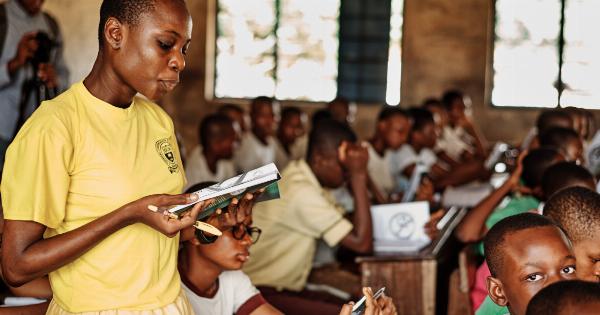After a few years of relief, the Ebola virus has returned, spreading a wave of fear and panic across the world. This outbreak has now reached an alarming level with several reports of patients diagnosed with Ebola in different parts of the world.
With an average fatality rate of 50-90%, Ebola is one of the deadliest viruses known to mankind.
What is Ebola?
Ebola is a viral disease that was first identified in 1976, after outbreaks in Sudan and Congo. The Ebola virus is highly contagious and can be transmitted from person to person through bodily fluids such as blood, vomit, and sweat.
Symptoms of Ebola
The symptoms of Ebola can appear anywhere from 2-21 days after exposure to the virus. These symptoms may include:.
- Headache
- Fever
- Vomiting
- Abdominal pain
- Muscle pain
- Diarrhea
- Bleeding from the eyes, nose, mouth, or rectum
Diagnosis and Treatment
Diagnosis of Ebola is through laboratory tests of blood and other bodily fluids. There is no specific treatment for Ebola, but supportive care can help with recovery.
The patients should be hospitalized in isolation facilities to avoid the spread of the virus.
Prevention of Ebola
Prevention is key to avoiding the spread of Ebola. Some basic preventive measures include:.
- Washing hands regularly with soap and water
- Using hand sanitizers
- Avoiding contact with bodily fluids of infected people
- Avoiding contact with wild animals, especially bats, monkeys, and apes
- Cooking meat thoroughly
The Current Outbreak
The current Ebola outbreak started in Guinea in February 2021 and has since spread to Sierra Leone and Liberia. The World Health Organization (WHO) has declared this outbreak as a Public Health Emergency of International Concern (PHEIC).
As of the writing of this article, there have been over 5000 reported cases of Ebola, with over 3200 deaths.
Impact of Ebola
The impact of Ebola goes beyond the human suffering and death. The virus can have significant effects on the economy, food security, and social fabric of the affected communities.
The Ebola virus outbreak can lead to economic disruptions, increased poverty, and panic among citizens.
Global Response to Ebola
The international community has responded to the Ebola outbreak by sending medical personnel and resources to help with the response effort.
The World Health Organization (WHO) and other international organizations have played a critical role in coordinating the response efforts.
The Way Forward
The Ebola virus outbreak is a devastating epidemic that has claimed many lives and caused significant harm. To contain the outbreak, we must take preventive measures to stop the spread of the virus.
We must also provide adequate support and care to those already affected. We hope that the current outbreak will be contained soon, and that the world will be better prepared for the next outbreak.






















